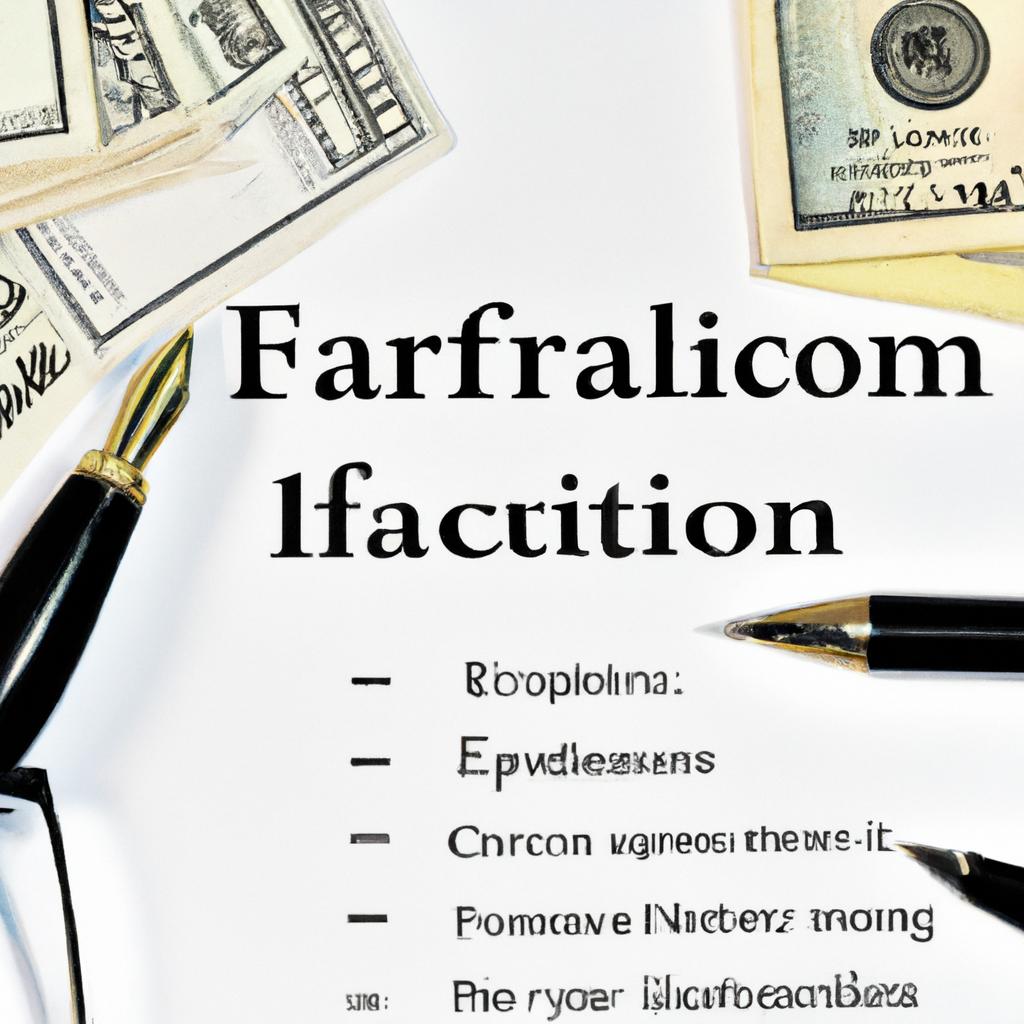As beneficiaries anxiously await the distribution of assets from a trust, questions often arise regarding the compensation entitled to the executor overseeing the process. In the realm of trusts and estates, the compensation of an executor is a matter of significant importance and often subject to misunderstanding. In this article, we will delve into the question that plagues many trust beneficiaries: “Does the executor of a trust get paid?” Join us as we navigate through the intricacies of executor compensation in the realm of trust administration.
Compensation for Trust Executors: Understanding the Legal Framework
When it comes to compensating trust executors, it is essential to understand the legal framework surrounding this issue. Executors of a trust are typically entitled to compensation for their services, as they play a crucial role in administering the trust and ensuring that the wishes of the trust creator are carried out effectively. The amount of compensation that an executor can receive is usually determined by state law and the terms of the trust itself.
Under New York law, trustees are entitled to “reasonable” compensation for their services. This compensation can be set by the terms of the trust, or if not specified, can be determined by looking at various factors such as the complexity of the trust, the amount of assets involved, and the amount of time and effort required to carry out the executor’s duties. It is important for both trustees and trust beneficiaries to understand the legal guidelines for compensation to ensure that all parties are treated fairly and that the trust administration process runs smoothly.

Factors Impacting Payment for Trust Executors
There are several factors that impact payment for trust executors in the realm of estate planning and probate. The compensation for trustees is typically outlined in the trust document itself and can vary depending on the complexity of the trust and the responsibilities involved. Here are some key factors to consider when determining how much an executor of a trust may get paid:
- The terms of the trust document, including any specific instructions regarding compensation
- The size of the trust estate and the amount of assets involved
- The amount of time and effort required to administer the trust
- The level of expertise and experience of the trustee
It’s important to note that trustees are entitled to reasonable compensation for their services, but the exact amount can vary depending on the above factors. In some cases, trustees may be entitled to a percentage of the trust assets, while in others they may receive a flat fee or an hourly rate. Ultimately, the payment for trust executors should be fair and reasonable based on the circumstances of the trust and the work involved.

Best Practices for Determining Executor Compensation
When it comes to determining executor compensation, there are several best practices to keep in mind to ensure fairness and transparency in the process. One important factor to consider is the complexity of the estate. Executors who are handling more complex estates may be entitled to higher compensation due to the increased time and effort required to settle the estate.
Another important consideration is the executor’s level of experience and expertise. Executors who have specialized knowledge or skills that are beneficial to the estate may be entitled to higher compensation. Additionally, it is recommended to consult with an attorney or financial advisor to ensure that the compensation amount is reasonable and in line with industry standards.

Considerations for Executors Seeking Fair Compensation
When serving as an executor of a trust, it is important to consider the question of compensation. While it is common for executors to receive payment for their services, the amount can vary depending on a number of factors. Executors should be aware of the following considerations when seeking fair compensation:
- Complexity of the Trust: The more complex the trust, the more time and effort it will require from the executor. This can be a key factor in determining a fair compensation amount.
- State Laws: Different states have different laws regarding executor compensation. It is important to be aware of the laws in your state to ensure that any payments you receive are legally compliant.
- Agreement with Beneficiaries: It is a good idea to have a clear agreement with the trust beneficiaries regarding executor compensation. This can help avoid any misunderstandings or disputes down the line.
Q&A
Q: Does the executor of a trust receive compensation for their services?
A: Yes, in most cases, the executor of a trust is entitled to receive payment for their time and effort in managing the trust.
Q: How is the compensation for the executor determined?
A: The amount of compensation for the executor is typically outlined in the terms of the trust document or is subject to state law guidelines.
Q: Are there any restrictions on how much the executor can be paid?
A: Some states have statutory limits on the amount that an executor can be paid, while others allow for ”reasonable compensation” based on the complexity and size of the trust.
Q: What factors determine the amount of compensation for the executor?
A: Factors such as the size of the trust, the complexity of the assets, the time and effort required, and the experience and expertise of the executor are typically taken into consideration when determining compensation.
Q: Can the beneficiaries challenge the compensation paid to the executor?
A: Yes, beneficiaries have the right to petition the court if they believe the compensation paid to the executor is unreasonable or excessive.
Q: Are there any alternatives to paying the executor a fee?
A: Some trusts may specify that the executor will not receive compensation, while others may offer non-monetary forms of compensation, such as reimbursement for expenses or a percentage of the trust’s income.
To Conclude
In conclusion, the question of whether the executor of a trust gets paid can vary depending on the specifics of the trust and the laws of the jurisdiction in which it is being administered. It is important for both trustees and beneficiaries to understand their rights and responsibilities in order to ensure that the trust is managed effectively and fairly. Ultimately, seeking guidance from a legal professional can help navigate any complexities and ensure that the wishes of the trust creator are carried out smoothly. Thank you for joining us in exploring this complex issue.
 Does the Executor of a Trust Get Paid?
Does the Executor of a Trust Get Paid?
If you have recently been named as the executor of a trust, you may be wondering whether or not you will receive compensation for your role. Although serving as the executor of a trust is a significant responsibility, it can also be a time-consuming and sometimes challenging task. Therefore, it is natural to wonder if you will receive any financial compensation for your efforts. In this article, we will explore the topic of whether or not the executor of a trust gets paid and provide valuable information to help you better understand your role and your compensation.
Understanding the Role of the Executor of a Trust
Before diving into the topic of compensation, let’s first define the role of the executor of a trust. An executor is an individual or an institution named in the trust document to manage the trust’s assets and carry out the trust’s terms and instructions. The executor is responsible for the proper administration of the trust, and their duties may include:
– Gathering and managing the trust assets
– Paying debts and expenses of the trust
– Distributing assets to beneficiaries according to the terms of the trust
– Filing tax returns for the trust
– Communicating with beneficiaries and providing them with updates on the trust’s status
– Acting in the best interest of the beneficiaries at all times
As you can see, the role of the executor is crucial and requires a significant amount of time, effort, and attention to detail.
Factors Impacting Executor Compensation
Compensation for an executor of a trust is not predetermined and can vary based on several factors, including:
– State Laws: Each state has its laws regarding the compensation of executors. Some states have fixed percentages or dollar amounts set by law, while others may allow the executor and the beneficiaries to negotiate a fair compensation amount.
– Trust Document: The trust document itself may specify how much the executor will receive as compensation. Some trusts may provide a fixed sum or a percentage of the trust’s assets, while others may determine the compensation based on the complexity of the trust or the time and effort required.
– Trust’s Assets: The size and complexity of the trust can also impact the executor’s compensation. If the trust contains a significant number of assets or complex assets, the executor may receive a higher compensation amount.
– Family Dynamics: In some cases, family dynamics can impact the executor’s compensation. If family members are in disagreement over the trust’s terms or if the executor must navigate complex family dynamics, they may receive a higher compensation amount.
– Professional Experience: If the executor is a professional, such as an attorney or accountant, they may charge a fee for their services in addition to any compensation outlined in the trust document.
How Much Do Executors of Trusts Get Paid?
As mentioned earlier, the amount of compensation an executor of trust receives can vary greatly. In some cases, the executor may not receive any compensation at all, while in others, they may receive a substantial amount. According to a 2019 survey conducted by EstateExec, the median compensation for an executor of trust is 3% of the trust’s assets. However, the compensation can range anywhere from 1% to 5%, with some executors receiving a fixed amount.
It is crucial to note that, in most cases, the executor’s compensation is subject to income tax. Therefore, the executor will need to report the compensation as income on their personal tax return.
Benefits of Paying an Executor
It is essential to remember that the executor’s role is not just about managing the trust’s assets or distributing them to beneficiaries. It also involves a significant amount of time, effort, and stress, especially if the trust is complex or if there are disputes among family members. Providing reasonable compensation for the executor can be a way to compensate them for their commitment, time, and effort.
Paying the executor can also help expedite the trust’s administration process. In some cases, the executor may be less motivated to complete their duties if they are not being compensated, causing delays in the asset distribution process.
Practical Tips for Determining Executor Compensation
If you are in the process of creating a trust or are considering naming an executor, here are some practical tips to keep in mind when determining executor compensation:
1. Consult with an Attorney: An experienced attorney can help you understand the state laws and guide you on the appropriate amount of compensation for the executor.
2. Be Fair: It is crucial to ensure that the compensation aligns with the executor’s duties, as outlined in the trust document, and is fair to both the executor and the beneficiaries.
3. Communicate Clearly: Discuss the compensation with your chosen executor before naming them in the trust document. Being transparent and open with your expectations can help avoid misunderstandings or conflicts in the future.
4. Consider Alternatives: If you are creating a trust, consider designating a professional executor, such as a bank or trust company, instead of a family member or friend. This alternative may come with additional fees, but it can also alleviate conflicts of interest and ensure the trust’s proper management.
5. Update the Compensation: If the trust’s assets increase or decrease significantly, consider updating the compensation amount for the executor to reflect the current value accurately.
In Conclusion
The executor of a trust plays a crucial role in the proper administration of the trust and its assets. Whether or not they receive compensation for their services can vary depending on the trust’s terms, state laws, and other factors. If you are considering creating a trust, it is essential to consult with an experienced attorney to determine the appropriate compensation for the executor and ensure your trust is appropriately managed.












